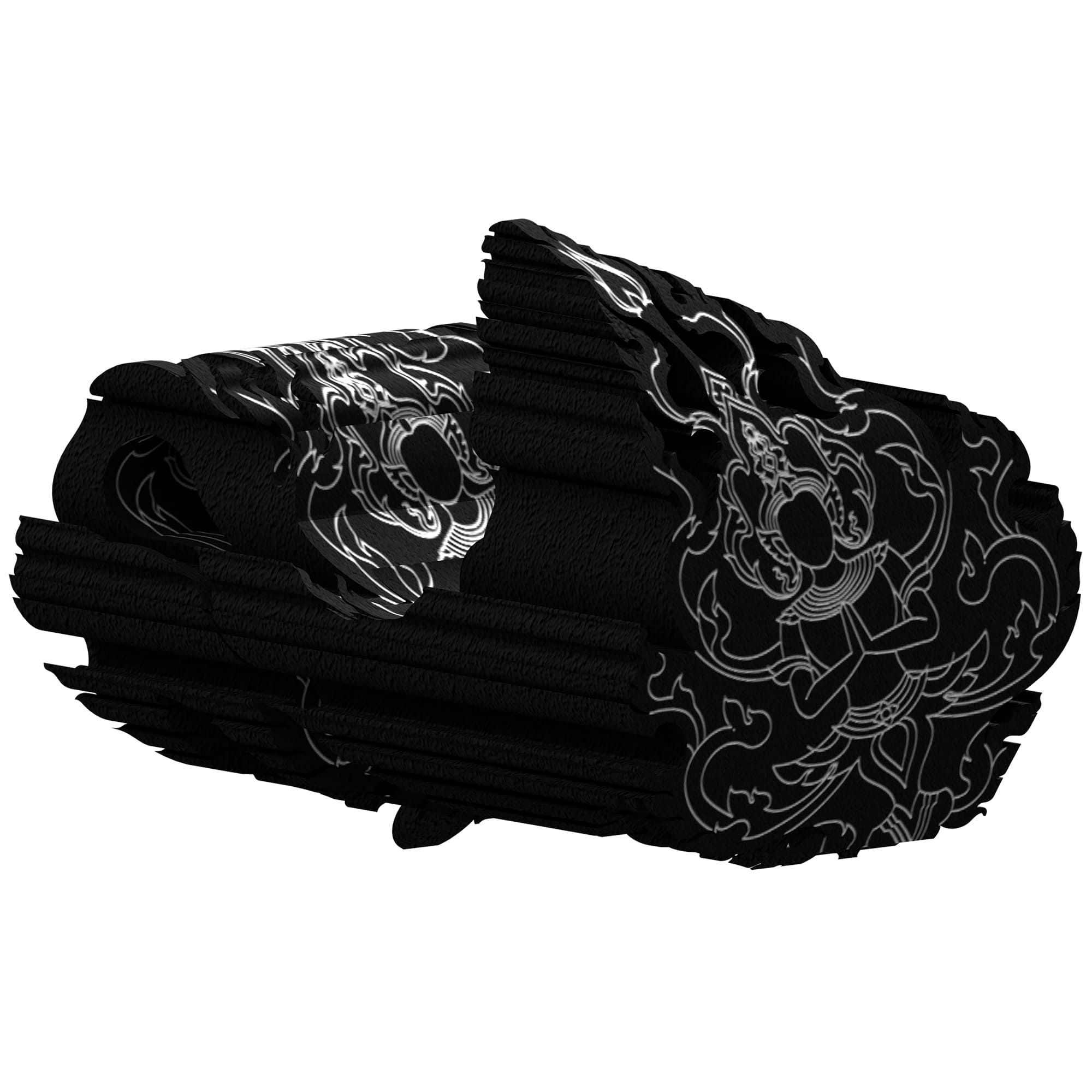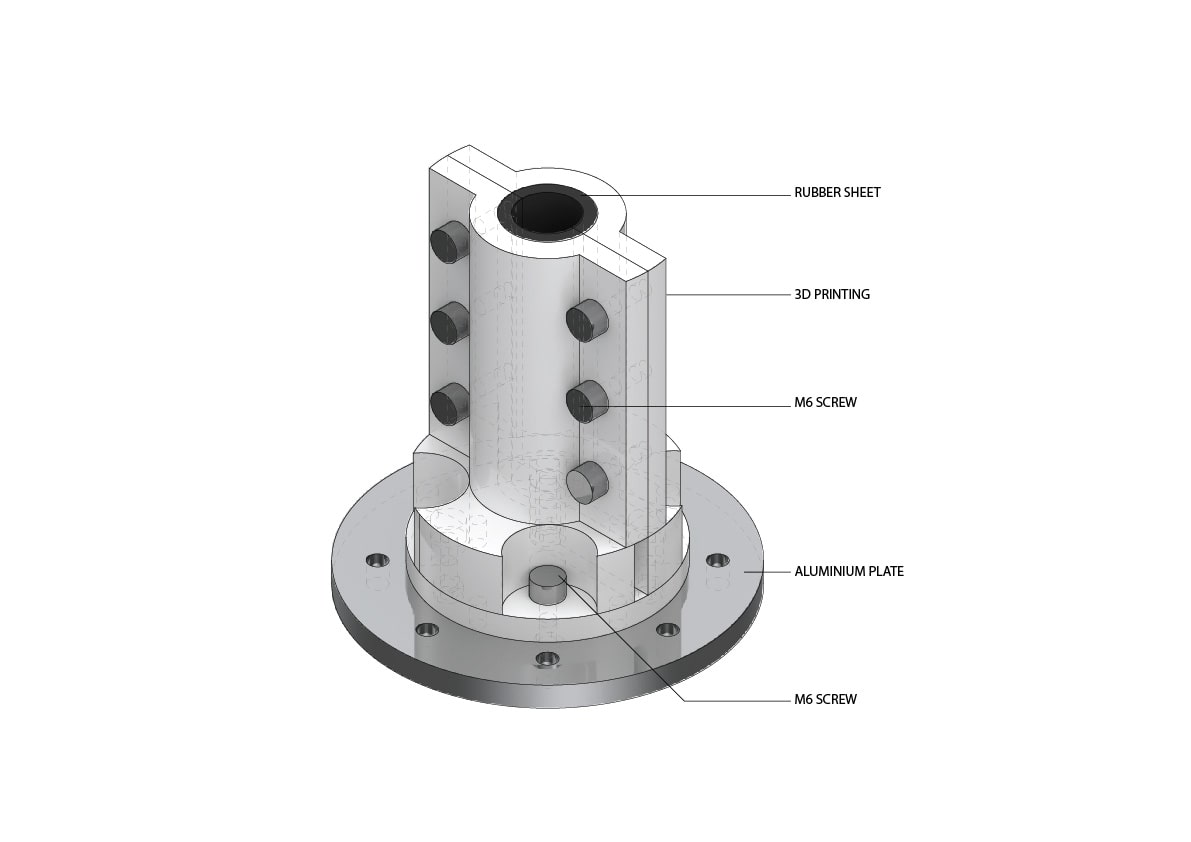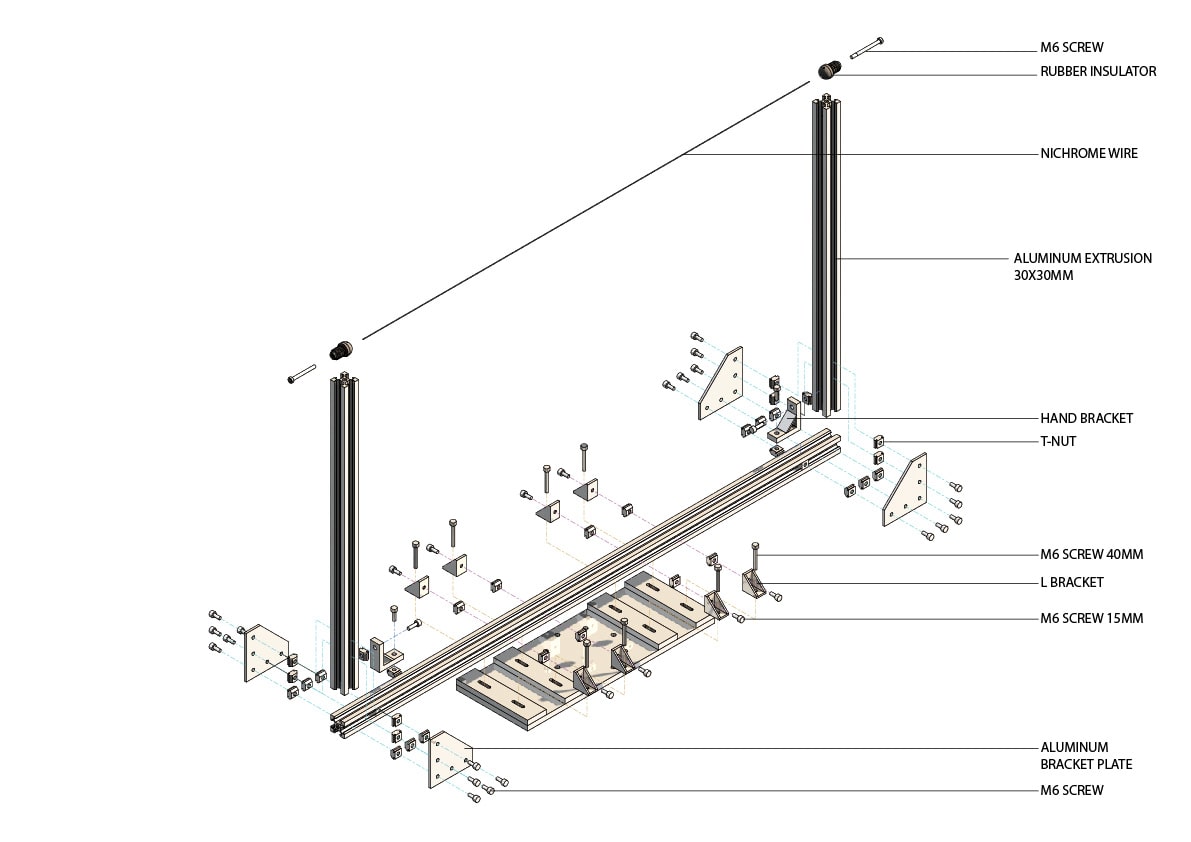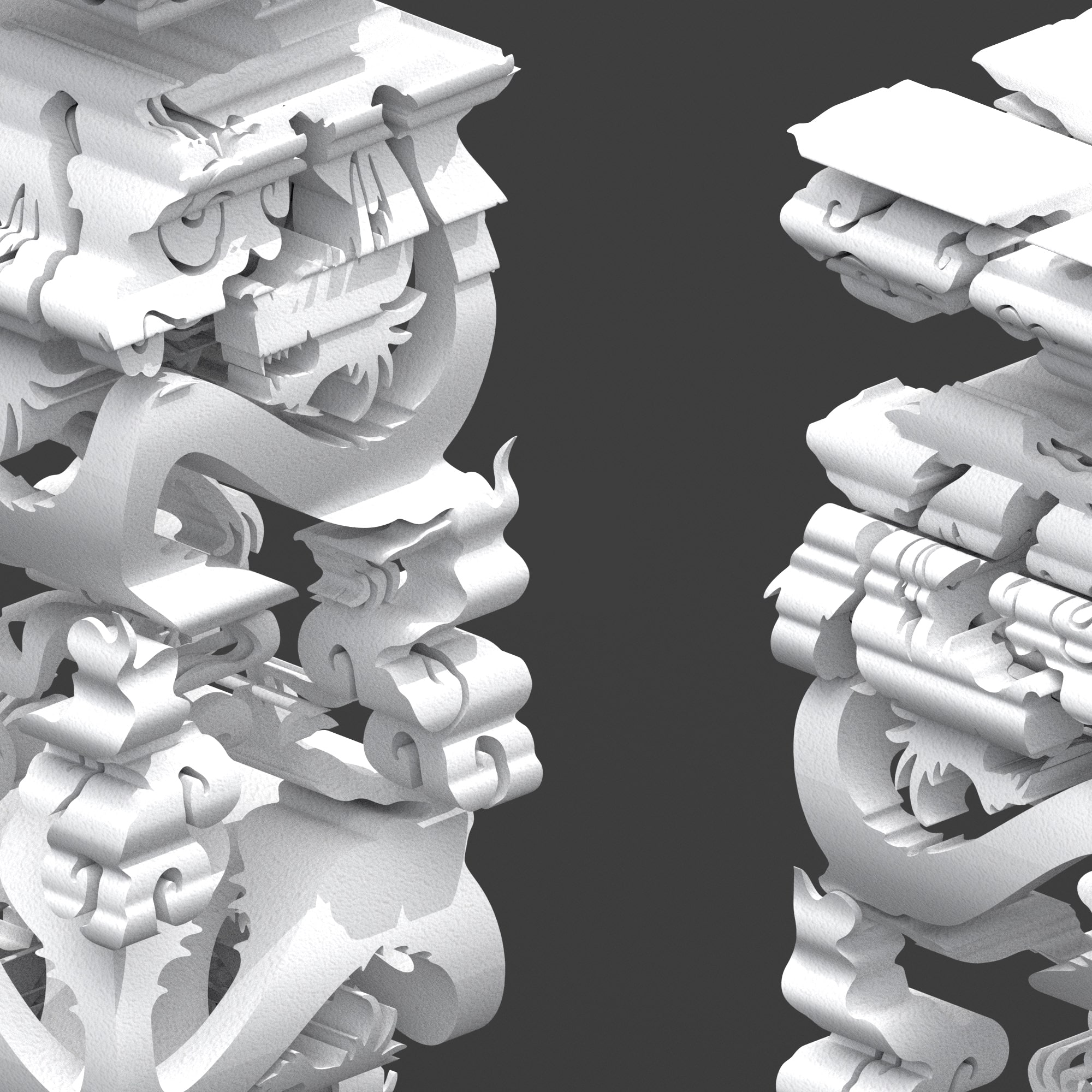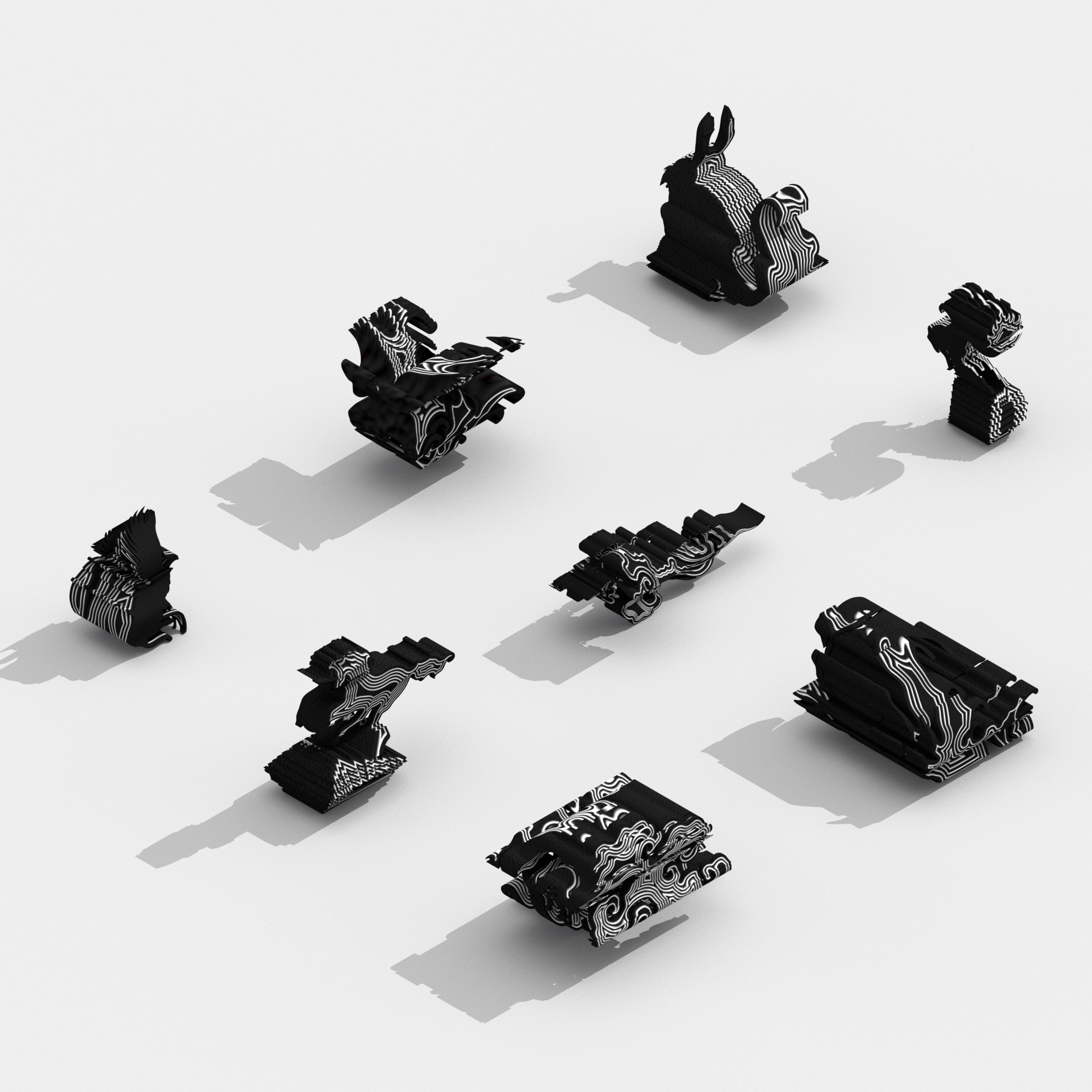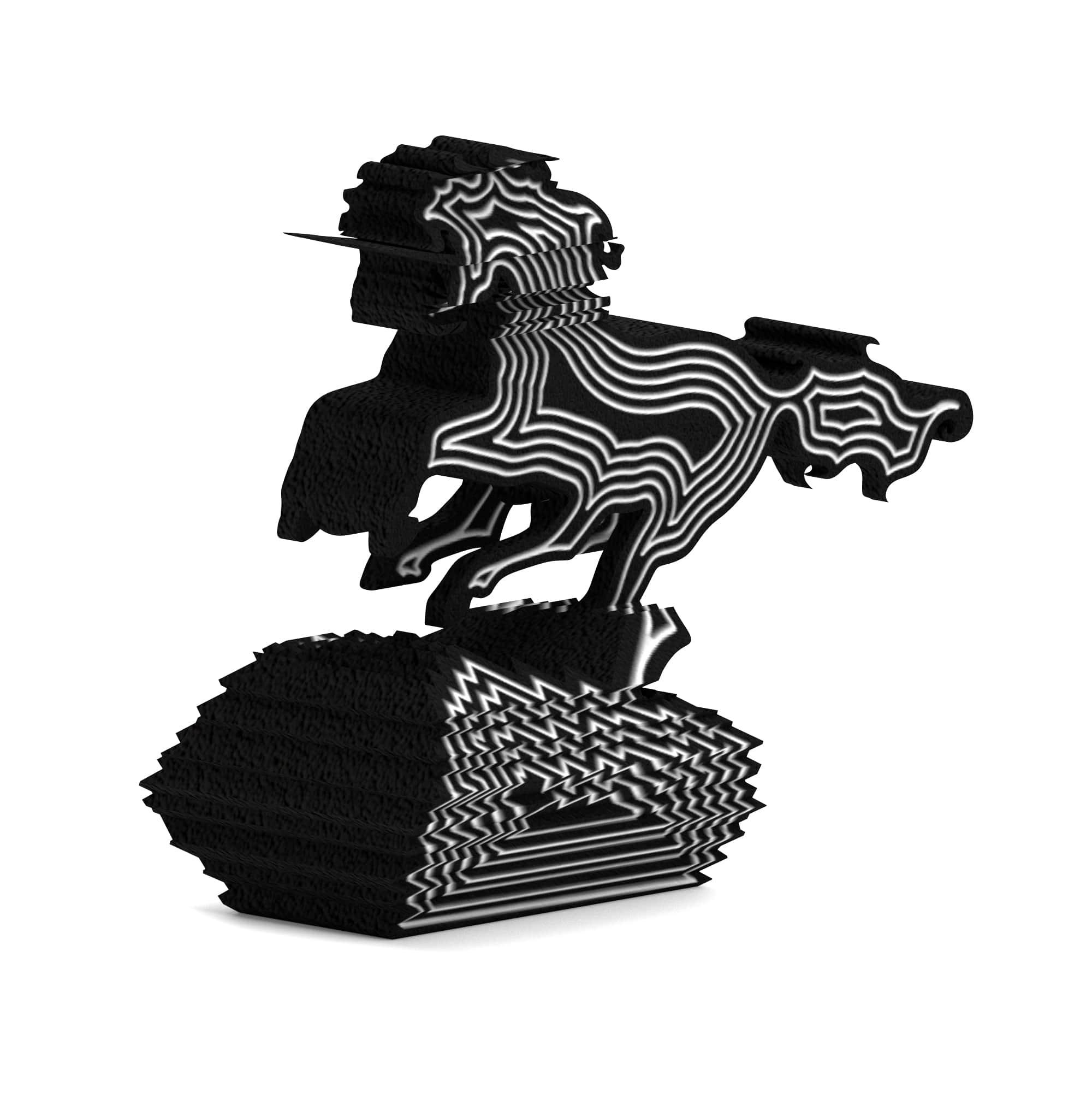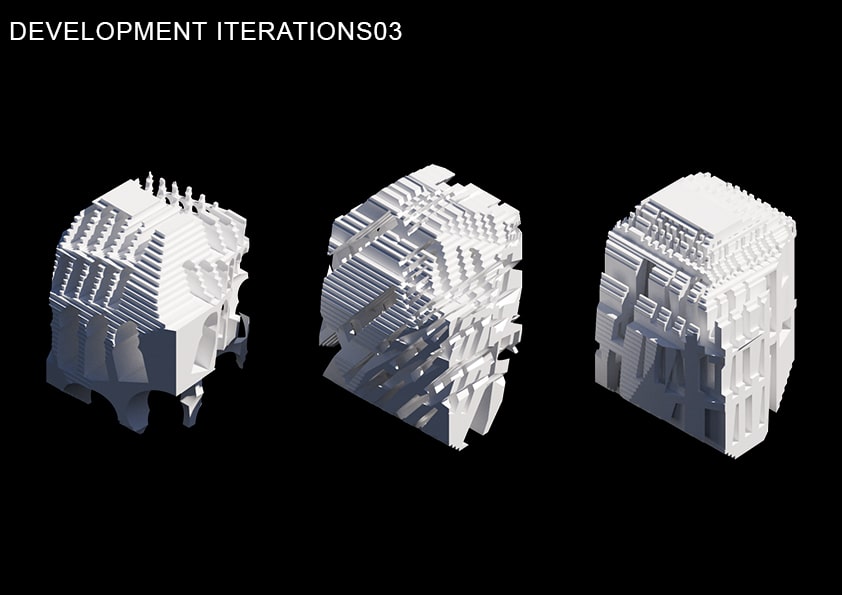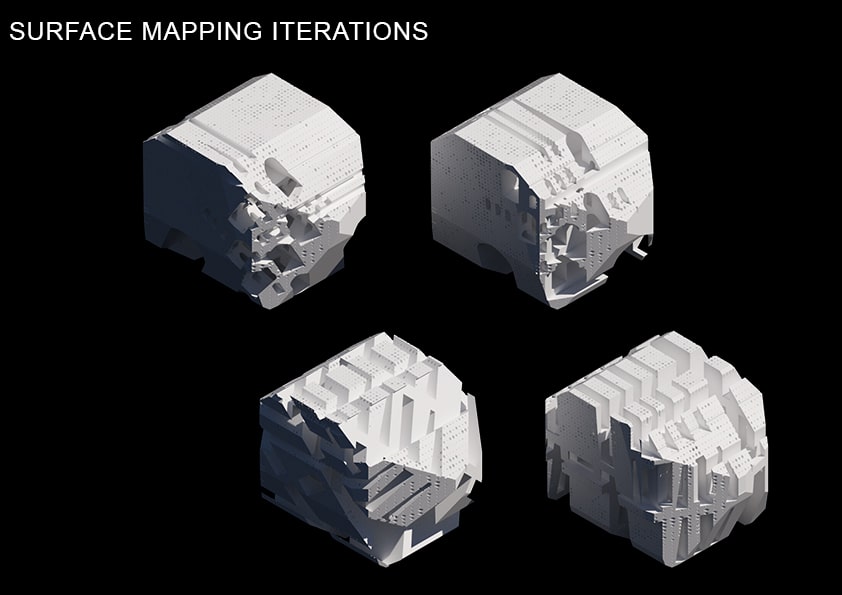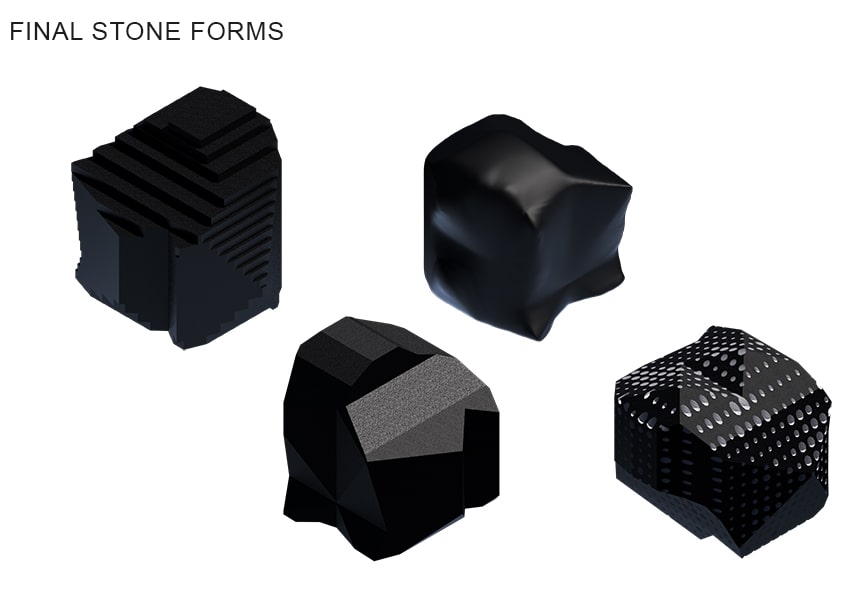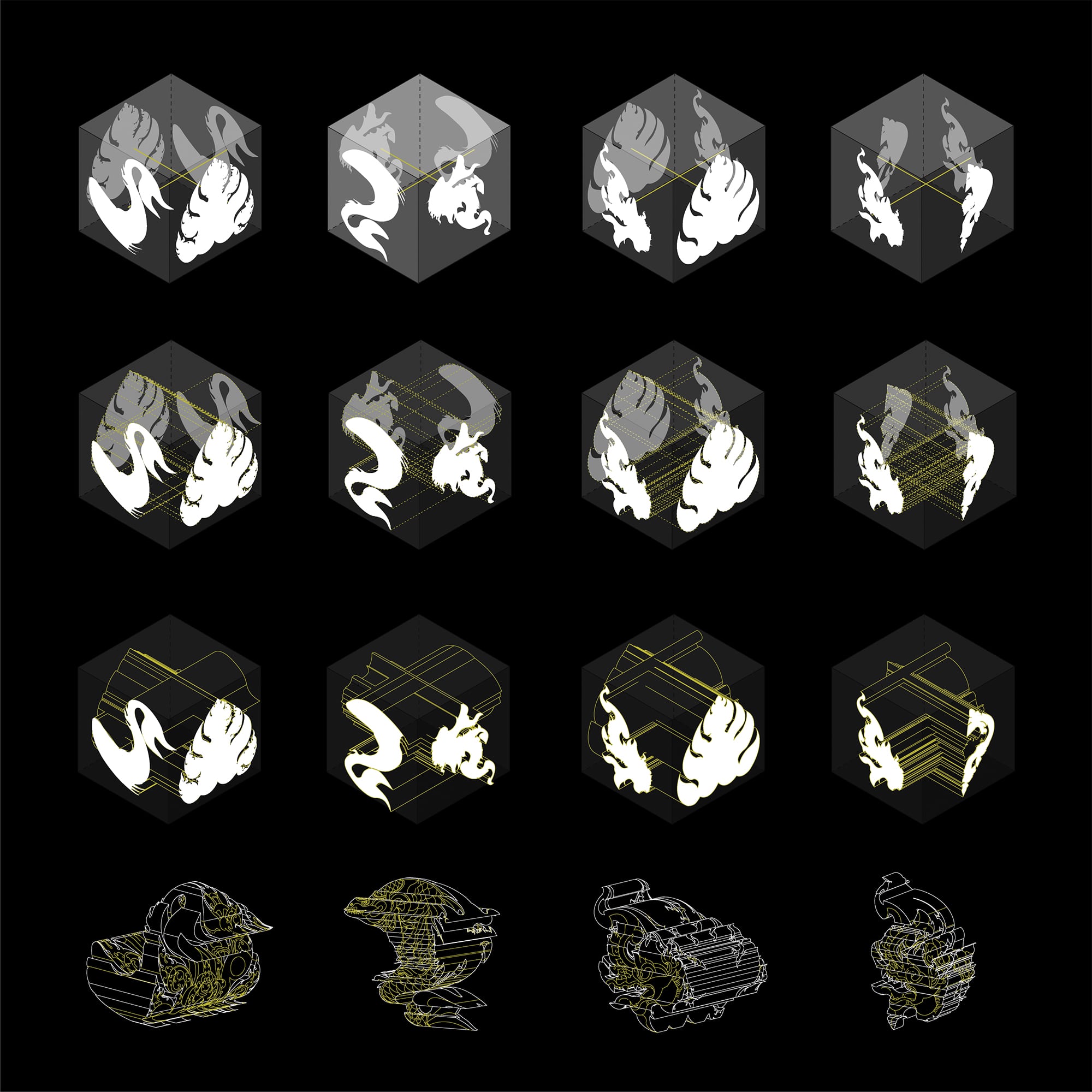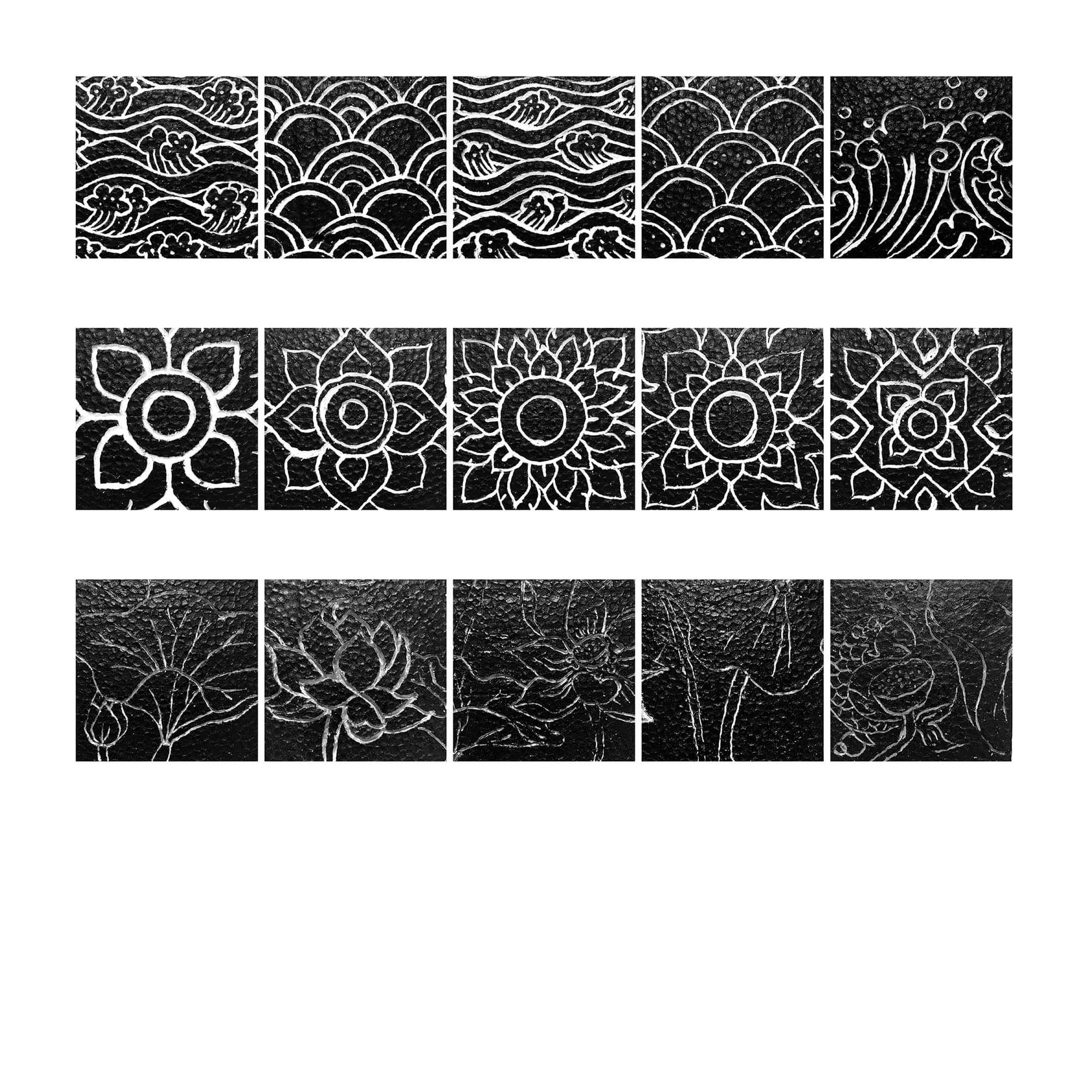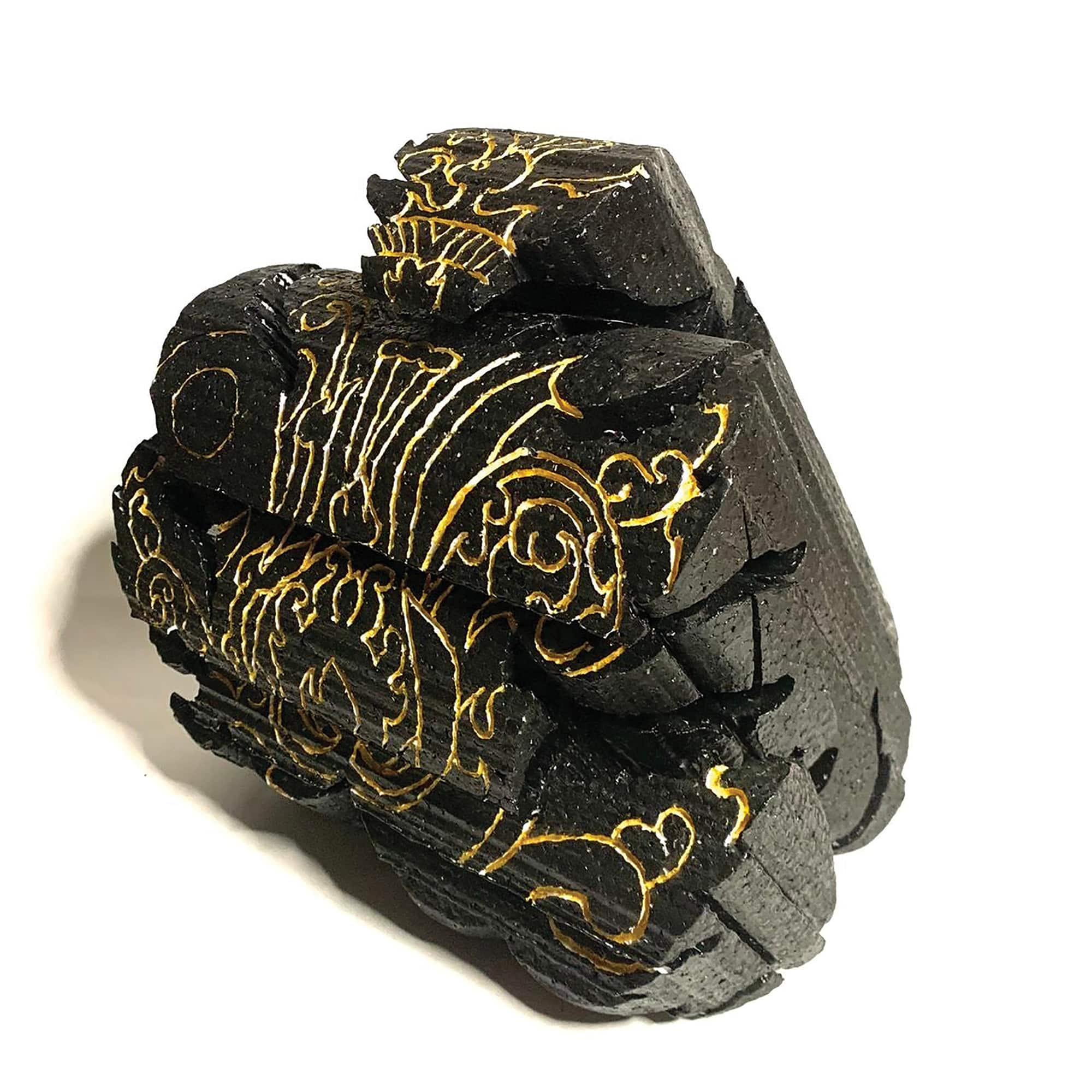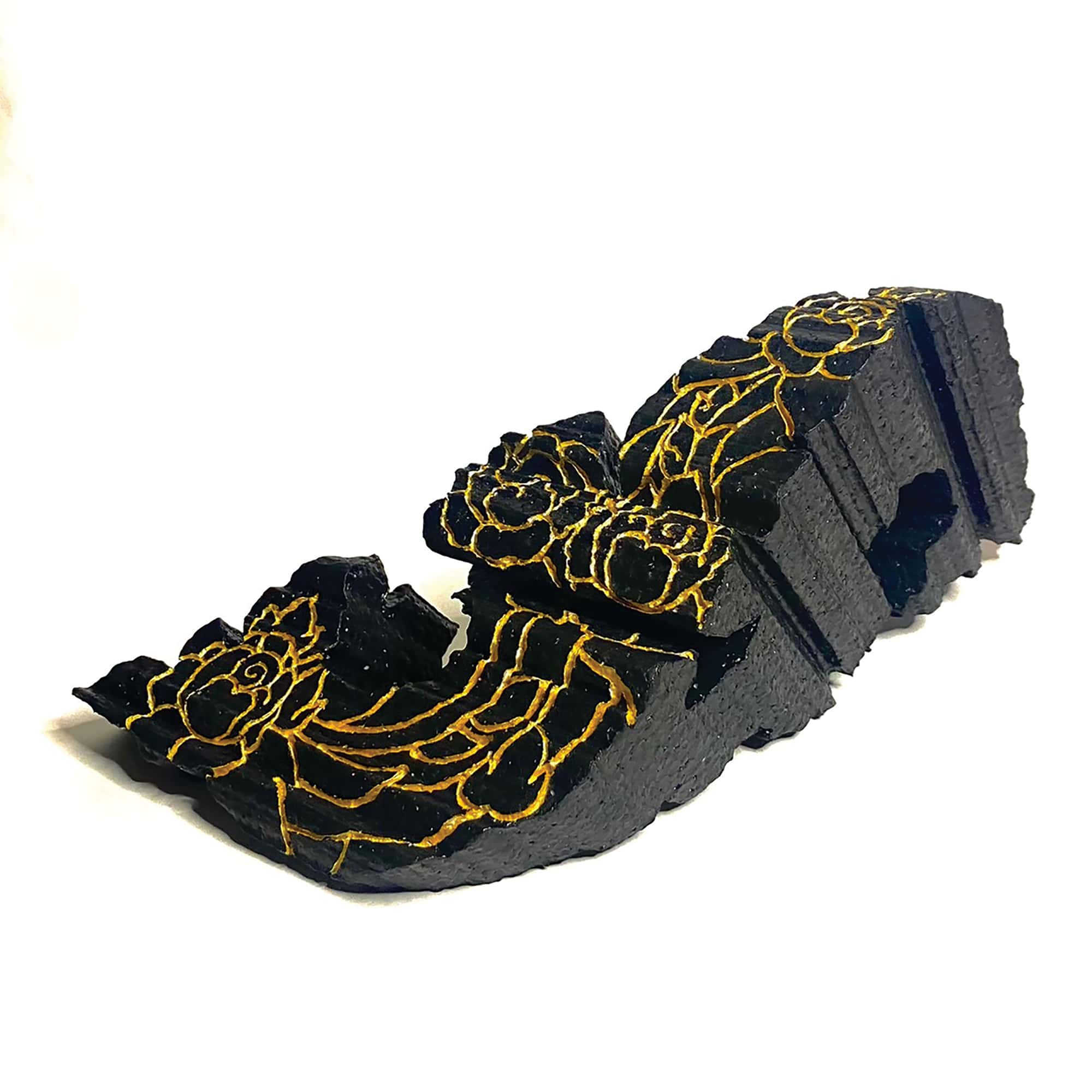The aim for this project is to interrogate the interrelationships between machine tools, machine instruction, material behavior, and geometry, more specifically developing machine fabrication interfaces that target foam as a material. Most plastics are liquids that are molded or formed into surfaces. Foam, however, is ‘cast’ in the form of blocks that are later cut or milled into shape with computer-controlled machines. Though lightweight, foam is solid and brittle rather than thin and flexible in its nature. It favors mass and void relationships rather than surfaces. In fact, a piece of white high-density foam sculpted by a hot wire may have a material sensibility that is closer to chiseled stone than to a typical consumer product made from plastic. Foam, though technically a plastic, seems to have a lot in common with the most archaic of materials in architecture. Like stone, foam can be processed to adopt visual qualities from other materials. It can indeed be shaped to look massive and chunky, like stonework, but also soft and supple, like the draping in a baroque marble sculpture. The design investigation will focus on developing machine logics that draw inspiration from the projective geometries, the poché, and its relationship to mass and void to create architectural details, seating, or wall mounted shelving systems.

Hseng Tai Lintner
Notice: Undefined index: collaborators in /var/www/vhosts/www.inda.arch.chula.ac.th/httpdocs/experimental-projects/wp-content/themes/tailwindtheme/theme/single-project.php on line 111
Kantapim Buabool
Nitchakarn Bunjongsiri
Janenita Chaimongkoltrakul
Khanapot Chaiprem
Patcharaporn Ekpinijpittaya
Peerada Jantapaluek
Chayanut Laoratthaphong
Adam Mallamphut
Sarai Paruhatsanon
Nawarat Piriyothaisakul
Pisit Puwatputtawisai
Nutnicha Sirorattanakul
Wiput Vitayarueangdej
Related Projects:
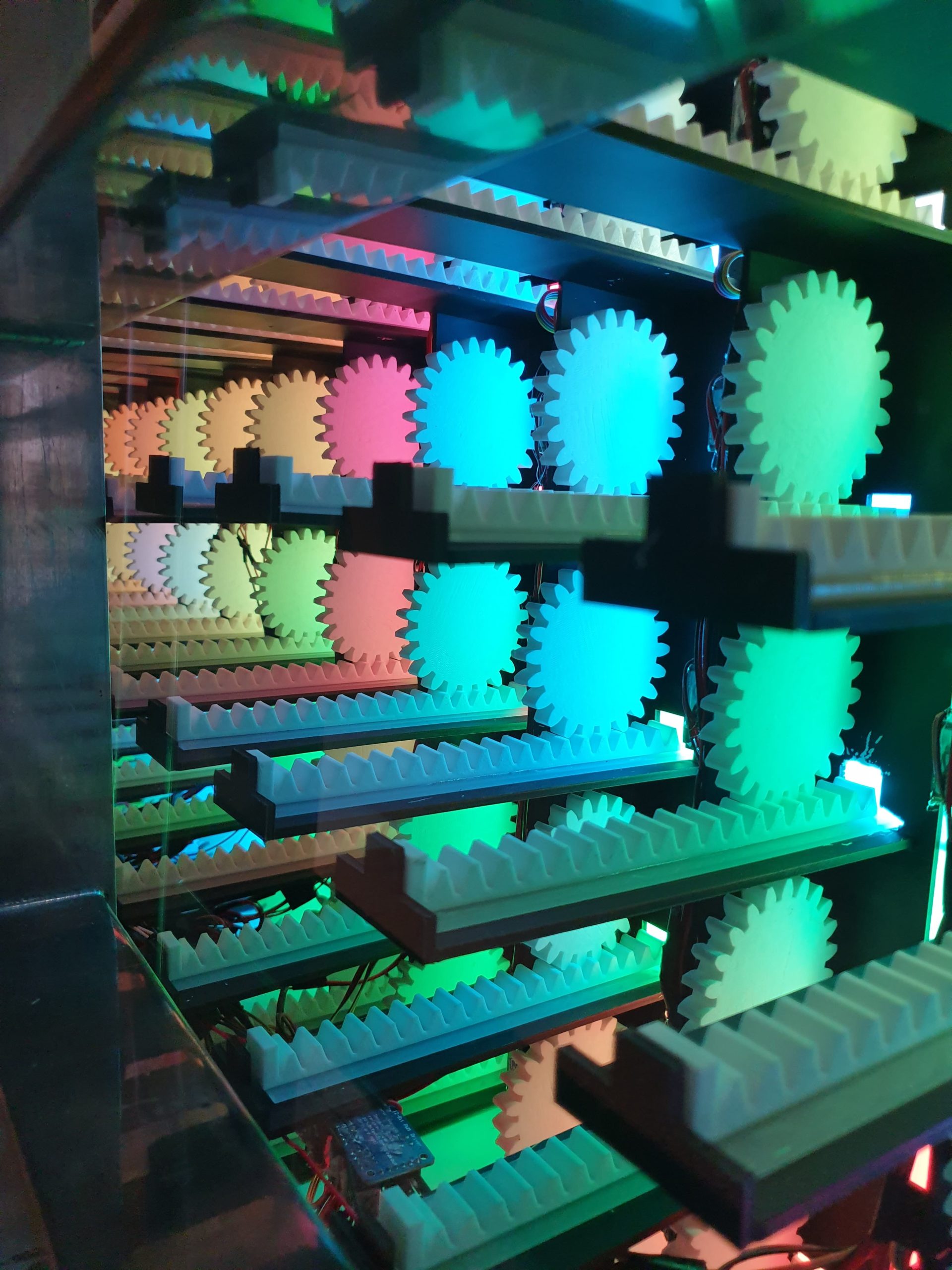
Performative Clock
During the COVID-19 pandemic, we have experienced more physical isolation due to daily online activities such as Zoom meetings, Google Meet lectures, online exams, and digital submissions. After the pandemic, our social lives may change forever with limited social encounters and gatherings only reserved for special occasions. This may lead to less social interaction and fewer chance encounters which are valuable for a tightly-knit group such as the Faculty of Architecture where students spend most of their time together. Inspired by the giant Ghibli clock in Tokyo, the Performative Clock serves as one of the must-see attractions at Chulalongkorn University, and it attempts to reconnect the community through carefully orchestrated performances that attract the attention of the wider public.
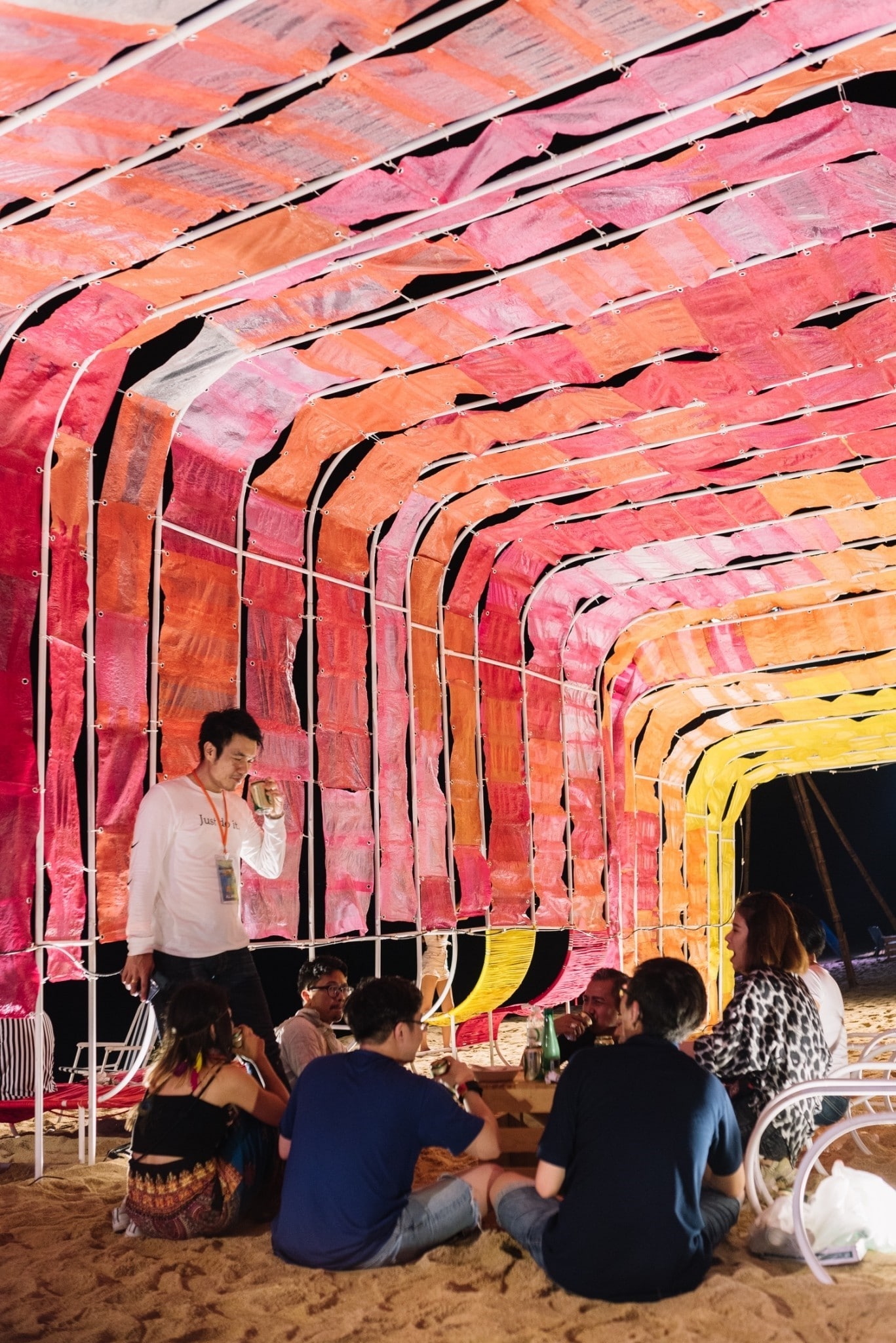
Spectrum
Bangkok Design Week 2018, an annual event organized by the Thailand Creative and Design Center (TCDC) invited the Thai creative community to share fresh and insightful visions of Bangkok with experimental design projects. “Spectrum” is a design-build workshop that proposes an alternative application for plastic bags and examines the architectural properties of the material including color, light transmission, elasticity, and durability. Exploring the concept of “upcycled” materials, students have collected over 500 colored plastic bags, flattened them, and fused them together to generate a cladding surface that includes specially-fabricated segments with a double curvature. The continuously-morphing pavilion structure consists of twenty-six powder-coated steel tube frames that provide different seating configurations, while its modular components and simple construction joints allow for easy assembly and disassembly to facilitate flexible reuse for future events. In fact, it was originally built at the Bangkok Art and Culture Centre (BACC) but was later reconstructed as part of MUI Fest 2018 on the island of Koh Samui.
